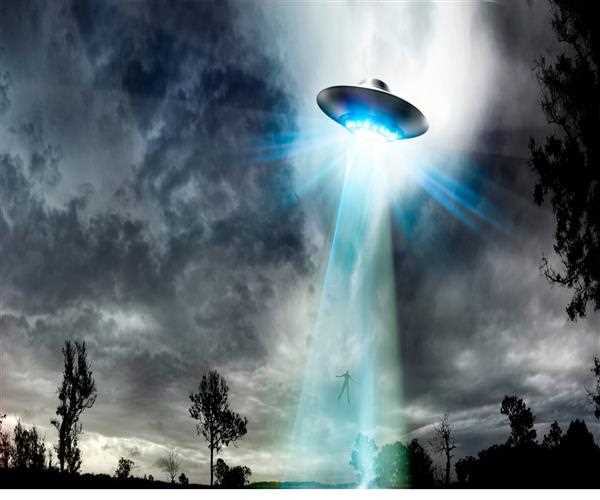
05-Aug-2023 , Updated on 8/5/2023 7:34:54 AM
Does UFO really exists- Explore it
Highlights
Government Interest and Disclosure
- Discussion of government programs (like the U.S. Navy's UAP Task Force) investigating UFO reports.
- Highlighting instances of official acknowledgment of UFO encounters.
- Mention of the declassification of certain UFO-related documents
Credible Witnesses and Pilots
- Emphasis on reports from trained military personnel and pilots who have witnessed unusual aerial phenomena.
- Quotes or interviews from pilots describing their encounters with UFOs.
Scientific Skepticism and Inquiry
- Explanation of the scientific approach to UFOs – analyzing evidence, data collection, and remaining open to possibilities.
- Mention of academic studies and research on UFO phenomena.
Addressing the stigma associated with discussing UFOs in scientific circles
- Brief overview of potential explanations for UFO sightings, including experimental aircraft, atmospheric phenomena, and optical illusions.
- Mention of the distinction between "unidentified" and "extraterrestrial."
Cultural and Media Influence
- Discussion of how UFOs have permeated popular culture, movies, and literature.
- Impact of media portrayals on public perception of UFOs.
In recent years, the topic of unidentified flying objects (UFOs) has transitioned from the fringes of conspiracy theories and science fiction into the mainstream discourse. Once relegated to tabloids and late-night radio shows, UFOs have now become a subject of serious study and consideration by government agencies, scientists, and the general public. The question that lingers, however, is whether UFOs truly exist. This view delves into the evidence, skepticism, and implications surrounding UFOs to explore the reality behind these enigmatic phenomena.
A Brief History of UFOs- From Fiction to Fact
The concept of UFOs has been a part of human culture for centuries. Tales of strange lights in the sky, flying saucers, and encounters with otherworldly beings have been woven into folklore and ancient texts. Yet, it was only in the mid-20th century that the modern UFO era truly began.
In 1947, an alleged UFO crash near Roswell, New Mexico, captured the imagination of the world and sparked widespread interest in extraterrestrial visitation. Since then, countless reports of UFO sightings, abductions, and encounters have been documented, fuelling both intrigue and skepticism.
Government Acknowledgment and Declassification
One of the most significant developments in the UFO discourse came in 2017 when The New York Times published an article detailing a secret Pentagon program called the Advanced Aerospace Threat Identification Program (AATIP). This program, established in 2007, aimed to investigate and assess the nature of UFO sightings reported by military personnel and civilians.
The revelation of AATIP's existence and its $22 million budget underscored the seriousness with which government agencies were approaching the UFO phenomenon.
Furthermore, several declassified videos recorded by U.S. Navy pilots were released to the public, showcasing unidentified aerial objects exhibiting extraordinary flight capabilities.

These videos, known as the "Tic-Tac," "Gimbal," and "Go Fast" videos, depicted objects that appeared to defy the laws of physics, accelerating at incredible speeds and performing maneuvers that current human technology cannot replicate. The release of these videos raised significant questions about the origin and nature of these unidentified objects.
Eyewitness Testimonies and Credibility
Skepticism about UFOs often stems from the perceived lack of credible evidence. However, numerous pilots, military personnel, and civilians have reported sightings of UFOs over the years.
These accounts come from individuals with extensive training and experience in aviation and observation, lending credibility to their testimonies. Additionally, many of these witnesses have no apparent motive to fabricate stories of UFO encounters, further enhancing the plausibility of their claims.
In recent years, a shift in attitude among military personnel has become evident. Pilots and other military personnel, once hesitant to report UFO sightings for fear of ridicule or professional consequences, are now encouraged to come forward with their observations.
This change in policy indicates a growing acknowledgment of the need to investigate and understand these phenomena in a more systematic and scientific manner.
Possible Explanations and The Extraterrestrial Hypothesis
When examining the existence of UFOs, several possible explanations emerge. Some proponents argue that UFOs could be advanced, classified military aircraft or experimental technologies developed by nations. However, this explanation does not account for the historical and global span of UFO sightings, nor does it explain the observed flight characteristics that defy our current understanding of aerodynamics.
Another perspective suggests that UFOs could be natural phenomena misinterpreted as technological objects. Atmospheric anomalies, reflections, and rare celestial events might contribute to some UFO reports, but they cannot explain all cases, especially those involving structured craft and intelligent behaviors.
The most provocative and captivating explanation, of course, is the extraterrestrial hypothesis – the idea that UFOs are manifestations of visitations by intelligent beings from other planets.
While this idea sparks the imagination and is a staple of science fiction, it lacks concrete evidence. The vastness of the universe and the possibility of other civilizations make the extraterrestrial hypothesis scientifically plausible, yet until direct evidence is obtained, it remains speculative.
Implications and Future Directions
The existence of UFOs, if confirmed, would have profound implications for our understanding of the universe, our place in it, and the nature of advanced technologies. Confirming the presence of extraterrestrial civilizations would prompt a reevaluation of our perspectives on biology, physics, and even philosophy. The potential for knowledge exchange, cooperation, or conflict with these civilizations raises both exciting possibilities and legitimate concerns.
Moving forward, continued research and investigation are crucial to unraveling the mystery of UFOs. The establishment of transparent, well-funded, and scientifically rigorous programs, akin to AATIP, could provide a more comprehensive understanding of these phenomena.
Collaboration between governments, scientists, and civilian organizations would help ensure a thorough and unbiased examination of UFO reports.
In conclusion, the question of whether UFOs exist is far from settled, and the discourse surrounding these enigmatic phenomena is multifaceted. While evidence such as government acknowledgment, credible eyewitness testimonies, and declassified videos provides compelling reasons to take UFOs seriously, skepticism remains a healthy and necessary component of scientific inquiry.
As technology advances and our understanding of the universe deepens, the truth behind UFOs may eventually come to light, unraveling one of the greatest mysteries of our time. Until then, the quest to determine the existence and nature of UFOs continues to captivate the curious minds of scientists and enthusiasts alike.

SEO and Content Writer
I am Drishan vig. I used to write blogs, articles, and stories in a way that entices the audience. I assure you that consistency, style, and tone must be met while writing the content. Working with the clients like bfc, varthana, ITC hotels, indusind, mumpa, mollydolly etc. has made me realized that writing content is not enough but doing seo is the first thing for it.
Join Our Newsletter
Subscribe to our newsletter to receive emails about new views posts, releases and updates.
Copyright 2010 - 2026 MindStick Software Pvt. Ltd. All Rights Reserved Privacy Policy | Terms & Conditions | Cookie Policy